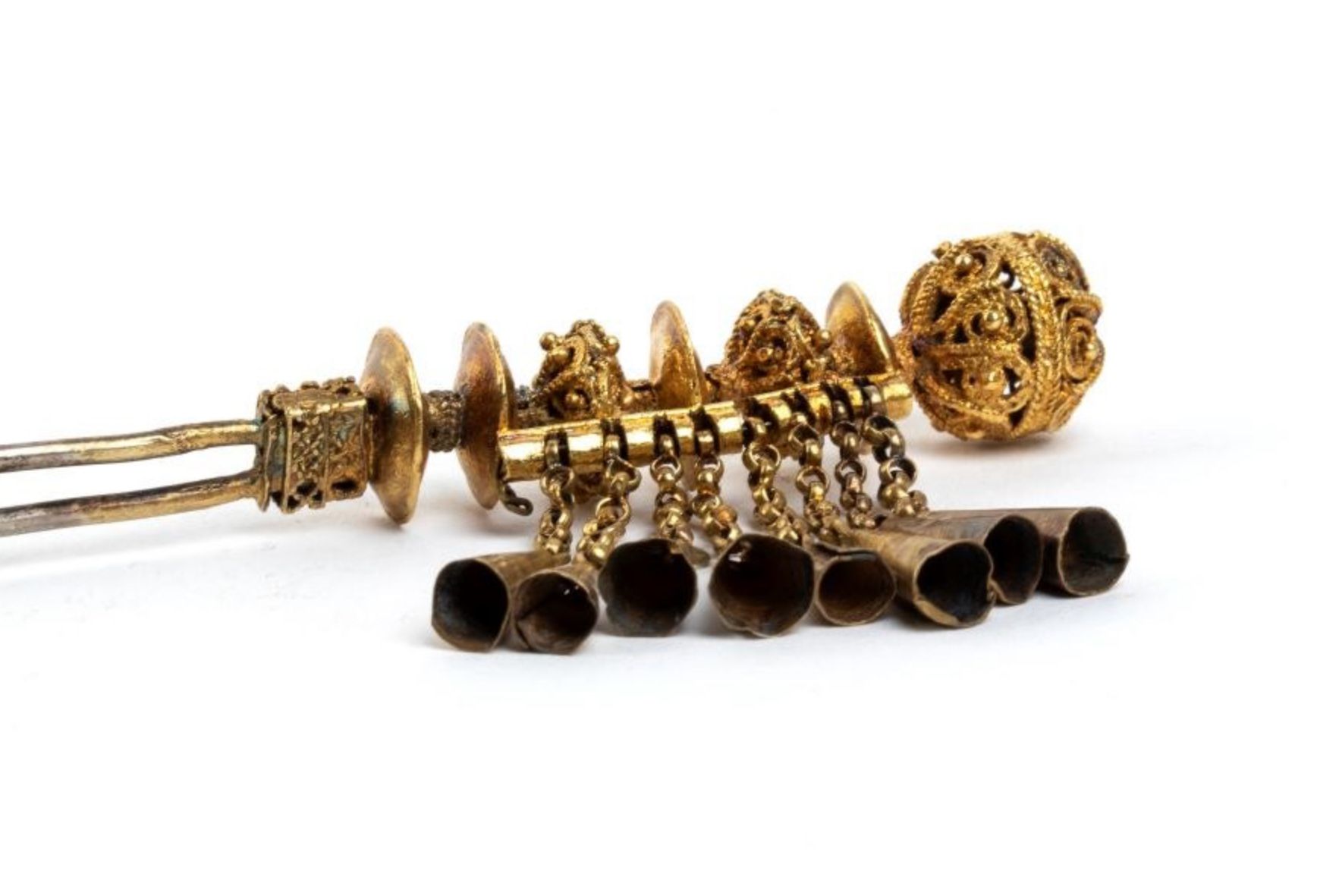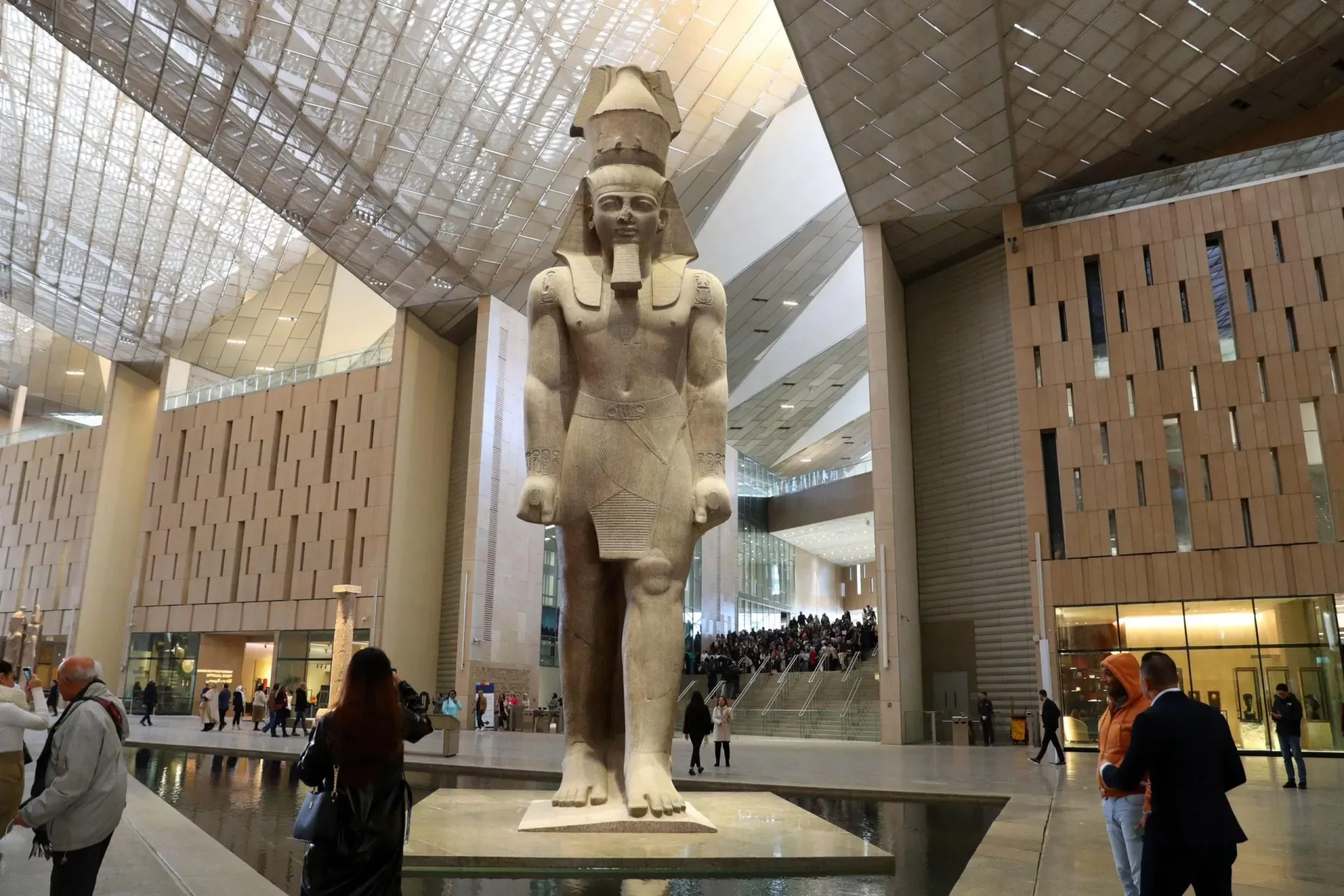Cultural Restitution
SHARE ARTICLE
When retired doctor Mark Warner travelled to the Oba’s palace in Benin City on 20 June 2014 to present the elderly Oba Erediauwa with a pair of Benin Bronzes from his grandfather’s collection, he never envisaged how this one event would resonate across the entire museum community.
The two Bronzes, a traditional offering bell and an Oro bird broken from its staff, were acquired by his grandfather, Capt. Herbert Walker CBE, during the 1897 sacking of Benin City. They were just two objects from a larger number of fine Benin Bronzes and pieces of ivory collected by Walker following the raid.
Coveted by his family for years, his grandson had decided to reassess the ownership of these two looted objects. The ethical case for their return was strong. If the ethical consensus was in favour of returning Nazi looted art, why shouldn’t the same apply for the Benin Bronzes? An even more powerful motivation, however, was Walker's personal belief that it’s better they are owned by people who have a long term interest in their future*. That meant returning them to Benin City and the Edo people.
The federal government offered to fly him to Nigeria’s capital, Abuja, where he would hand them over to Nigeria’s Minister of Arts and Culture. But Warner wasn’t convinced this would guarantee their return to the Edo people. It looked as if his plan to return the Bronzes was about to unravel. However, at this point the Oba himself stepped forward and paid for Warner to come directly to Benin City, avoiding Abuja altogether.
117 years after the two items were looted, the grandson of the British officer who took the Bronzes finally returned them to the great-grandson of the Oba from whom they were looted.
Despite the challenges he faced from officialdom and the mounting evidence of Nigeria’s disunity about where the Bronzes should be returned, Warner still felt it was his personal responsibility to return the Bronzes to their source.
“For me, the most important thing is that the descendants of one of the soldiers who was responsible for the sacking of Benin are making a gesture of respect for that people and its culture.”
Mark Warner
Walker’s very bold and personal campaign continued five years later (December 2019) when he arranged a temporary loan of two wooden ceremonial paddles to the Pitt Rivers Museum in Oxford. Walker hadn’t realised the paddles in his grandfather’s collection formed part of the plunder from Benin City until he saw similar paddles on the website of South London's Horniman Museum and Gardens. After their display in Oxford, he has requested the paddles are returned to Benin City.
Assisting private individuals with their wish to return looted artefacts represented a new model for restitution, according to Dan Hicks, professor of contemporary archaeology and a curator at the Pitt Rivers Museum. “What we’re learning is that restitution can take many forms,” he said. “This seems to be something new that we’re doing, in that we are able to support the wishes of a private individual to restitute their own objects.”
The success of Warner’s bold 2014 initiative to take upon himself responsibility for returning his grandfather’s looted Benin Bronzes has encouraged other public collections to reassess their ownership of Benin artefacts. Warner's desire to correct an historic injustice has resonated throughout the museum sector. Perhaps more than any other group of objects torn away in circumstances of extreme violence, the ethical case for returning the Benin Bronzes has forced museums and nation states into re-thinking their entire approach to the communities from where their collections were sourced.
* See Barnaby Phillips, Loot. Published by Oneworld (2021) for an excellent account of Mark Walker’s 2014 initiative
Photo: Mark Warner presenting his two Benin Bronzes to the Oba, June 2014
Courtesy of hasta-standrews.com
More News



